Confederate Truths: Documents of the Confederate & Neo-Confederate Tradition from 1787 to the Present.
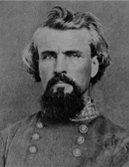

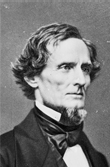
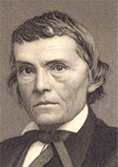


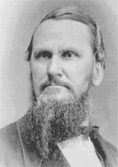
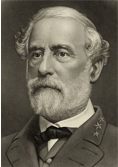
Mildred Rutherford 1913 Address to the United Daughters of the Confederacy on race and slavery
1913 Mildred Rutherford, "Address Delivered by Miss Mildred Lewis Rutherford, Historian General United Daughters of the Confederacy," delivered at Grunewald Hotel, New Orleans, La., Thursday, Nov. 13th, 1913. Rutherford's delusional white supremacy astounds.
[Page 20]
We are now brought to the eighth period of our history, The South on the Defensive, or The Abolition Crusade.
I said that the South was preeminent in the last period, but was she allowed to reap the reward of her victory? Not at all. Seward and other Northern politicians gathered in Convention at Pittsburg, Pa., and arranged to so legislate that no slaves should be in this newly acquired territory. This naturally made the South indignant, for she resented the many acts of injustice that had been shown to her. She had been unjustly treated in the Tariff Acts of 1830 when Hayne and Calhoun of South Carolina boldly contended for her rights. Hayne said, "It is unconstitutional for a government to make laws to enrich one section and impoverish another," and he was right. The hiding of runaway slaves, and believing their representations of plantation life rather than the representations of the Christian men of the South caused increased resentment. Thirty thousand of our negroes, the property of the planters, had been encouraged to run away and hidden from their owners by means of the so-called "Underground Railways" at the North, and sent across the line to Canada.
As in family life, a child is punished if disobedient, so in plantation life a disobedient and unruly negro had to be punished. Discipline had to be maintained on the plantation as in the home. Now it was more agreeable for that negro to run away and cross the border line where he knew he would be protected than to receive his just punishment. And it was perfectly natural for this kind of negro to exaggerate his threatened punishment. He told the abolitionists that we yoked them to plows to cultivate our fields, and the abolitionist willing to believe this did so, not realizing that the negro was our salable property and that a $60 mule would be much cheaper for this work than a $1200 negro. He said that we used dogs to tear their flesh when we used blood hounds to track the runaway. If an overseer, and these overseers were rarely Southern men, whipped a negro cruelly, as did sometimes happen on the large plantations, but not oftener than parents sometimes whip cruelly a child, that overseer was at once dismissed. Had no other reason than a selfish reason prevailed, a slaveholder could
[Page 21]
not afford to have his property injured by brutal treatment.
Harriet Beecher Stowe's "Uncle Tom's Cabin" was founded on one of these cruel misrepresentations by a negro from a Mississippi plantation. Mrs. Stowe, of course, really believed it to be true. But that book did more than any other one thing to bring on the War between the States. The South felt powerless to stem the tide of popular belief at the North, so fanatical did these political abolitionists become.
A Georgia lawyer, Thos. R. R. Cobb, brought out about this time a book, "The Law of Slavery," which really is a most remarkable production. Every available authority upon the subject of slavery among all nations was carefully studied and quoted. Coming just about the time of "Uncle Tom's Cabin" it was suppressed in the North, and the war coming on prevented a second edition in the South. When William Lloyd Garrison heard that this book proved that the institution of slavery was defended by the Bible, he said, "Better then destroy the Bible," showing to what length his fanaticism led him. Fourteen Northern States passed "Personal Liberty Bills" and were violating the Fugitive Slave Law which was included in Henry Clay's Omnibus Bill. The South feeling that this Omnibus Bill was unjust to her, accepted it, hoping to bring peace. When these same Northern States, violating the law, urged the election of Abraham Lincoln as President of the United States, and he was elected without a single electoral vote from the South, the Southern States felt no right would be respected and it was full time to secede.
Yes, the North was preeminent in this period of our history.
*****
[Page 22]
The Humiliated South of the Reconstruction Period.
After the surrender the soldiers returned to their homes, where homes remained, oppressed and depressed. They literally had nothing left but the ground upon which they stood. Families scattered, negroes freed, banks closed, no currency available. The slaveholder knowing less than his overseer and slaves about the practical part of farming. The lawyer had no clients, the teacher had no pupils, the merchant had no credit, the doctor had no drugs. Ah! it was pitiful! Georgia and South Carolina suffered most on account of the desolation caused by Sherman's March to the Sea.
This was the time when those women of the Confederacy showed of what stuff they were made. They put their loving arms about those husbands and sons and they said, "We are not conquered, we are just overpowered, and we think it was better that you fought, even if you did not win, than never to have fought at all. The South is going to come out all right, you wait and see." What prophets they were, for is not the South today the Nation's greatest asset
They began to collect the bodies of the Confederate soldiers scattered over the battle fields, placing them where they could care for them, and where they could deck those graves with
[Page 23]
flowers. Then they began to erect monuments over them. The men said, "We cannot help you, for we are under an oath of allegiance." The women said, "We are under no oath," and the work went on. Ben Butler, in Louisiana, said we should not build monuments to our Confederate dead, and so said Meade in Georgia, but we did it anyway, didn't we? They did not know Southern women. More monuments stand to the Confederate soldier today than to any other soldier of any other nation who ever fought for any cause.
Had not Lincoln been assassinated, all would have gone well even then, for the negroes still loved their old owners, and did not wish to leave them. Indeed they were like little children, they did not know how to make a living for themselves, and they did know that "ole marster" would never let them suffer. Lincoln's death was the worst blow that could have befallen the South. Lincoln was not such a great negro lover as has been represented in history. He was Southern born and knew the true relation between the owner and his slaves. It is true he did not believe in slavery, neither did Washington, nor Jefferson, nor Mason, nor many other leading men of the South.
Stonewall Jackson never owned but two slaves in his life and they begged him to buy them. But Lincoln was an intense Union man, and he determined to preserve the Union at all hazards. If he could do it with slavery, all right; if not, slavery must go. His Emancipation Proclamation did not free the negroes as a race. It freed your father's slaves, and my father's slaves, but it did not free Gen. Grant's slaves, nor the slaves in Missouri, Maryland, Kentucky, Delaware, and other States where slaves still remained after the War. This Proclamation, the result of a rash vow, was only a measure to punish the seceding States. He had said in his Inaugural Address the South need not fear his interference with their slaves. The slaves were not really freed until a Southern man, John Henderson of Missouri, proposed the 13th amendment to the Constitution after Lincoln's death. But had Abraham Lincoln lived, he would never have stood for that Reconstruction measure of Thad Stevens. We would never have been put under military rule and divided into Districts; we would never have had the Freedman's Bureau to humiliate us; he would never have stood for social equality in the South, he knew the thought of the people too well; we would
[Page 24]
not have had that rule of the carpet-bagger and scalawag in the South, and I am perfectly sure he would never have stood for that Exodus Order of Thad Stevens's, [sic] which more than any other one thing is responsible for the present day negro problem. That Order tore more children from their parents than was ever done in all the years of slavery by any slave block.
Thad Stevens saw that the negroes were remaining with their old owners and he could not accomplish the plans laid for social equality of the negro in the South. He told them if they remained with their former owners they would be made slaves again, and ordered that no two families could remain upon the same plantation. This caused a separation of families and a rending of ties and a fearful alienation between whites and blacks followed. The faithful mammies would not leave "marster's white chile," and that is the reason so many were found many years after freedom still with their former owners.
Oh! Daughters of the Confederacy, members of our Indiana Chapters, there was a friend of the South from your Indiana in those awful Reconstruction days. As our Mr. Cunningham has been instrumental in erecting a memorial to Mr. Owens who was so good to our prisoners during the War, so I would like to see you erect some memorial to that Democratic Congressman so anxious to help the South in this hour of her need. I refer to Dan Vorhees, of Indiana. He said it was a shame to make dead provinces out of living States. He said the South was a white man's country and should be kept so, but that Reconstruction Committee would not listen to his pleading.
The Ku Klux Klan was an absolute necessity in the South at this time. This Order was not composed of the "riff raff" as has been represented in history, but of the very flower of Southern manhood. The chivalry of the South demanded protection for the women and children of the South.
Yes, the North was preeminent in this period of our history, but does not the South stand out in no uncertain light? It has proven to the world that she can be as brave in defeat as in victory; she can stand humiliation and lawlessness with Christian resignation; she can bear and forbear, and yet suffer in silence; and while having far more to forgive and forget, she has a heart ever ready to do the things that make for peace,
[Page 25]
and stands ready today to stretch forth her hand in the true spirit of reconciliation.
The record of the Confederate soldier, the heroism of the Confederate women, the monuments erected to Southern valor have caused the whole world to be lost in admiration and wonder.
****
Now comes The Second Period of Adjustment.
It was very hard for our Southern men unusued to manual labor of any kind to try to adjust themselves to the new order of things in the South. It really was easier for the women than for the men, and some men never did get adjusted, and some women have never been reconstructed.
The kitchens in the old civilization were never in the house, but some distance from it. There was no need that they should be in the house then, for there were plenty of young negroes to run back and forth with the hot waffles, the hot egg bread, the biscuits and the battercakes. But when the women of the South had to go into the kitchen after the negroes left, or had become too impertinent to be allowed around the house, the inconveniences were greatly felt. You must remember there was rarely such a thing as a cooking stove before the War. All cooking had to be done in an open fireplace, with oven and pots. There were no water works, and all water had to be drawn from the well or brought from the spring. There were no electric lights, no gas lights, no kerosene lamps even, and lard lamps were really a rarity used only by the rich. The dependence for light were wax, tallow and sperm candles. The wood had to be cut and the chips had to be picked up, and all this consumed time and required great patience. This was the beginning of the breaking up of home life in the South and it proved the death blow to the old time Southern hospitality. Things began to brighten, however, as the years rolled by, for the new homes in the South began to add the kitchen to the house and conveniences were gradually introduced, so that with gas stoves, electric plates and fireless cookers our Southern women are as independent today as the women of the North, and can cook as good a meal with as little trouble, and wash and iron too, if need be. They really have more sympathy and more patience with the negro help than the women of the North, and really are more anxious to aid the negroes in the right way.